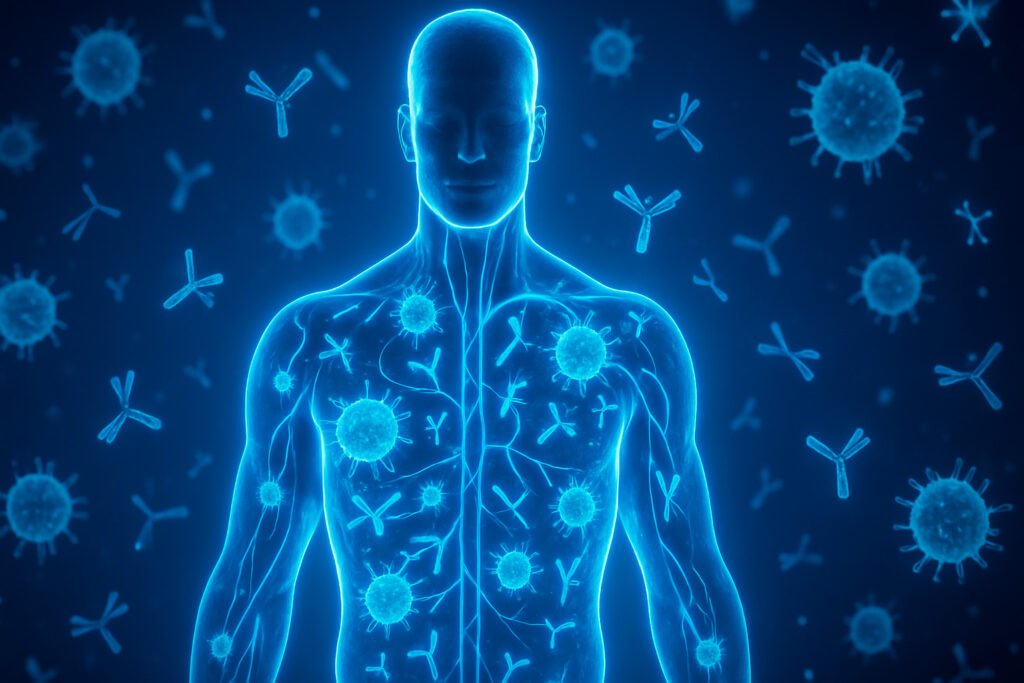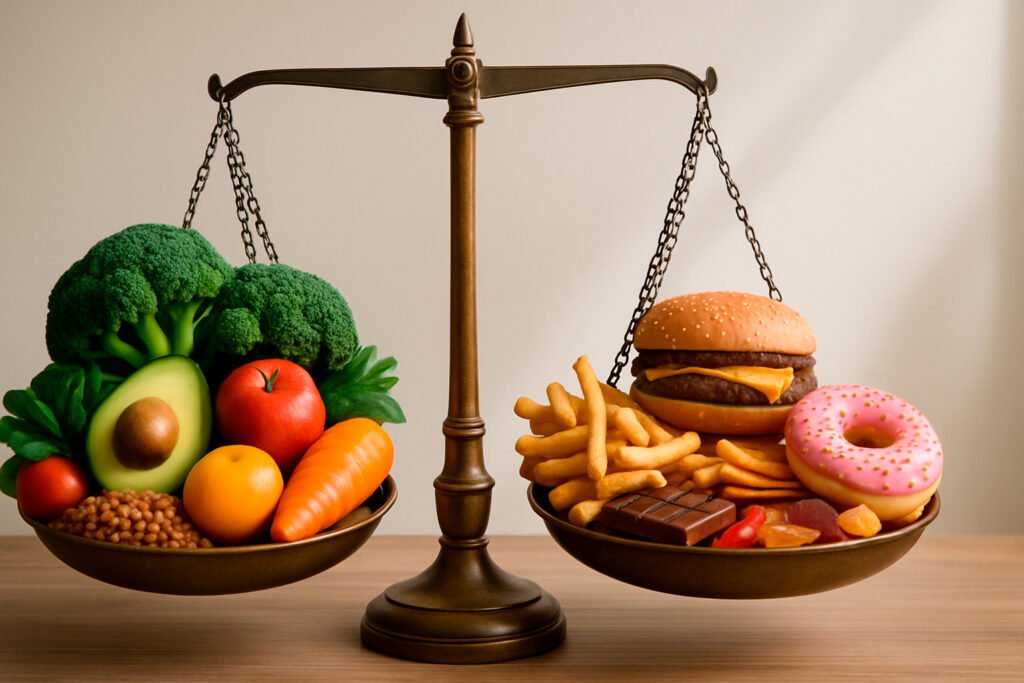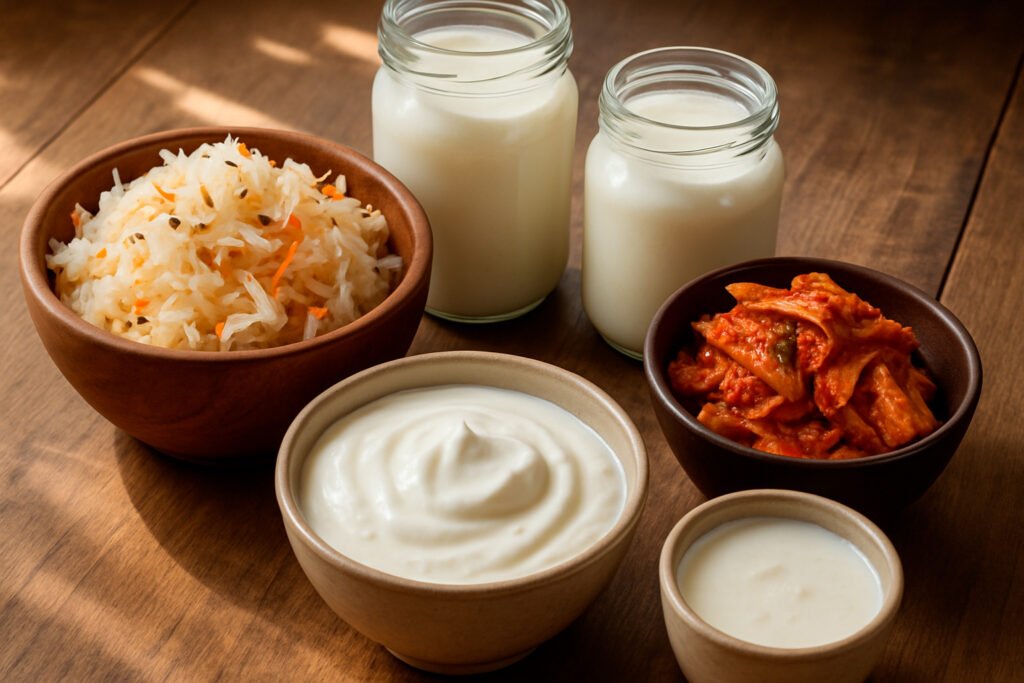Page Contents
TogglePicture this: you’re dealing with digestive issues that seem to pop up out of nowhere, leaving you feeling frustrated and searching for answers. You’ve tried various approaches, but nothing seems to provide lasting relief. What if I told you that the solution might already be living inside you? Your gut microbiome – that incredible ecosystem of trillions of microorganisms in your digestive tract – could be the key to transforming your overall health and well-being.
As someone who’s likely experienced the ups and downs of digestive challenges, you understand how these issues can impact every aspect of your daily life. The good news is that understanding gut health and supporting your gut microbiome doesn’t require complicated medical interventions or expensive treatments. Instead, it’s about working with your body’s natural systems to create an environment where beneficial bacteria can thrive.
Understanding Your Gut Health Ecosystem
Your gut microbiome is essentially a microscopic world within your body, containing over a thousand species of bacteria, along with viruses, fungi, and other microorganisms. Think of it as a diverse garden that requires the right conditions to flourish. When this ecosystem is balanced and healthy, it supports not just your digestion, but your immune system, mood, and even your brain function.
Most of these beneficial microorganisms live in your large intestine, where they perform crucial functions that your body simply cannot do on its own. They help break down complex carbohydrates and dietary fibers, producing short-chain fatty acids that nourish your gut lining and support overall digestive health.
This process is deeply connected to liver function, which plays a vital role in metabolizing nutrients from your gut. For those looking to support this crucial gut-liver axis, our detailed review of Finessa explains how to nourish both systems at once.
How Gut Bacteria Support Your Overall Wellness
The relationship between you and your gut bacteria is beautifully symbiotic – you provide them with food and shelter, and they return the favor by supporting your health in remarkable ways. These microscopic allies help synthesize essential vitamins like B1, B9, B12, and K, which are crucial for energy production, brain function, and blood clotting.
Your gut bacteria also play a vital role in strengthen immune system function. In fact, up to 80% of your body’s immune cells are located in your gut, making it your largest immune organ. Beneficial bacteria help train your immune system to distinguish between helpful and harmful microorganisms, while also competing directly with potentially dangerous pathogens for space and nutrients.

The Gut-Brain Connection: More Than Just Digestion
One of the most fascinating aspects of your gut microbiome is its connection to your brain and nervous system. Through what scientists call the gut-brain axis, certain bacteria actually produce neurotransmitters like serotonin – the same chemical that influences your mood and sense of well-being.
This connection explains why digestive issues often coincide with mood changes, stress, or anxiety. When your gut microbiome is out of balance, it can affect not just how you feel physically, but emotionally as well. Supporting your gut health can be a powerful step toward improving your overall mental wellness.
Recognizing Signs of Gut Imbalance
Healthcare providers use the term “dysbiosis” to describe an unbalanced gut microbiome. This imbalance can manifest in various ways, and recognizing the signs can help you take proactive steps to restore harmony to your digestive system.
Common symptoms of gut imbalance include:
- Persistent digestive discomfort or irregular bowel movements
- Frequent bloating or gas after meals
- Food sensitivities that seem to appear suddenly
- Recurring infections or feeling run down
- Mood changes or difficulty concentrating
- Skin issues that don’t respond to typical treatments
If you’re experiencing these symptoms, a targeted probiotic like PrimeBiome could help restore microbial balance and improve both digestion and skin clarity.
When these symptoms persist, it can sometimes indicate that the issue extends beyond the gut to involve other core digestive organs, like the liver. If you want to explore a comprehensive solution, our in-depth analysis of Finessa discusses how it targets both gut and liver health for lasting relief.
Natural Ways to Restore Gut Balance Through Lifestyle
The beauty of supporting your gut microbiome lies in the simplicity of natural approaches. Your daily choices have a profound impact on the health and diversity of your gut bacteria, and small changes can lead to significant improvements over time.

Nourish with Fiber-Rich Foods
Different beneficial bacteria thrive on different types of plant fibers. By incorporating a variety of whole foods into your diet, you’re essentially feeding different species of helpful bacteria. Focus on colorful vegetables, fruits, legumes, and whole grains that provide the diverse nutrients your microbiome needs to flourish.
Minimize Processed Foods and Additives
Highly processed foods, excess sugar, and artificial additives can disrupt your gut environment and favor less beneficial bacteria. While you don’t need to eliminate these foods entirely, reducing their frequency can help create a more favorable environment for healthy bacteria to thrive.
Support Regular Bowel Movements
Your body’s natural elimination process helps maintain a healthy turnover of microorganisms. Regular bowel movements ensure that waste products don’t linger too long in your system, which could allow harmful bacteria to overgrow.
Achieving this regularity often depends on the coordinated effort of your entire digestive system, including the liver’s role in producing bile. To understand how a targeted supplement can support this fundamental process, consider reading our comprehensive Finessa review.
The Role of Probiotic Foods in Gut Health

Incorporating naturally fermented foods into your diet can introduce beneficial bacteria to your gut microbiome. Foods like yogurt with live cultures, kefir, sauerkraut, kimchi, and kombucha contain live microorganisms that can support your existing gut bacteria.
However, it’s important to introduce these foods gradually, especially if your digestive system is sensitive. Start with small amounts and pay attention to how your body responds, adjusting your intake based on your comfort level and tolerance.
While food sources are ideal, some people benefit from targeted probiotic supplements – our in-depth PrimeBiome review examines a unique gut-skin formula that’s gaining attention.
Managing Stress for Digestive Wellness

Chronic stress can significantly impact your gut microbiome, disrupting the delicate balance of bacteria in your digestive system. The gut-brain connection works both ways – just as your gut can influence your mood, stress and anxiety can affect your digestive health.
Incorporating stress-reduction techniques into your daily routine can support both your mental well-being and your gut health. Consider practices like deep breathing exercises, gentle yoga, meditation, or simply taking regular walks in nature. These activities can help reduce stress hormones that may negatively impact your gut bacteria.
When to Seek Professional Guidance
While natural approaches can be incredibly effective for supporting gut health, there are times when professional guidance becomes important. If you’re experiencing persistent digestive issues, recurring infections, or symptoms that significantly impact your quality of life, consulting with a healthcare provider can help identify any underlying conditions that may need specific treatment.
A qualified healthcare professional can also help you determine if your symptoms are related to gut imbalance or if there are other factors at play. They may recommend specific tests or treatments that can address your individual needs while complementing your natural wellness approach.
Building Long-Term Gut Health Success
Creating lasting improvements in your gut health isn’t about quick fixes or dramatic changes – it’s about developing sustainable habits that support your microbiome over time. Think of it as tending a garden that requires consistent care and attention rather than sporadic intensive efforts.
Start with one or two changes that feel manageable and build from there. Perhaps you begin by adding more vegetables to your meals or incorporating a short walk after dinner. As these habits become natural parts of your routine, you can gradually introduce additional supportive practices.
To complement your long-term plan, PrimeBiome can be a convenient way to nourish your gut ecosystem with targeted probiotics daily. Also, ensuring the health of interconnected organs like the gut and liver is essential for sustainable wellness. You can learn more about a formula specifically designed for this purpose in our complete breakdown of Finessa and its benefits.
Your Journey to Better Digestive Health
Your gut microbiome is truly remarkable – a complex ecosystem that influences far more than just digestion. By understanding how to support these beneficial bacteria through natural means, you’re taking a powerful step toward improving not just your digestive health, but your overall well-being.
Remember that every person’s gut microbiome is unique, and what works best for you may be different from what works for others. Pay attention to your body’s responses, be patient with the process, and celebrate the small improvements along the way. Your gut bacteria have been with you since birth, and with the right support, they can continue to be valuable allies in your health journey for years to come.
The path to better gut health doesn’t require expensive supplements or complicated protocols – it’s about returning to the fundamentals of nourishing your body with whole foods, managing stress, and creating an environment where your beneficial bacteria can thrive naturally.
For those looking to support their gut microbiome with a targeted supplement, our comprehensive PrimeBiome review analyzes a formula that addresses both digestive and skin health.
Sources
This article was inspired by and adapted to better serve the readers of Best Natural Health Products from “What Is Your Gut Microbiome?”. Cleveland Clinic. Available at: https://my.clevelandclinic.org/health/body/25201-gut-microbiome. Accessed on: June 16, 2025.
Sarah Jenkins is a Senior Wellness Researcher and former science educator. She specializes in "Ingredient Provenance"—decoding complex clinical studies to ensure every product is safe and historically verified. Sarah translates dense medical data into actionable advice for families and individuals.
